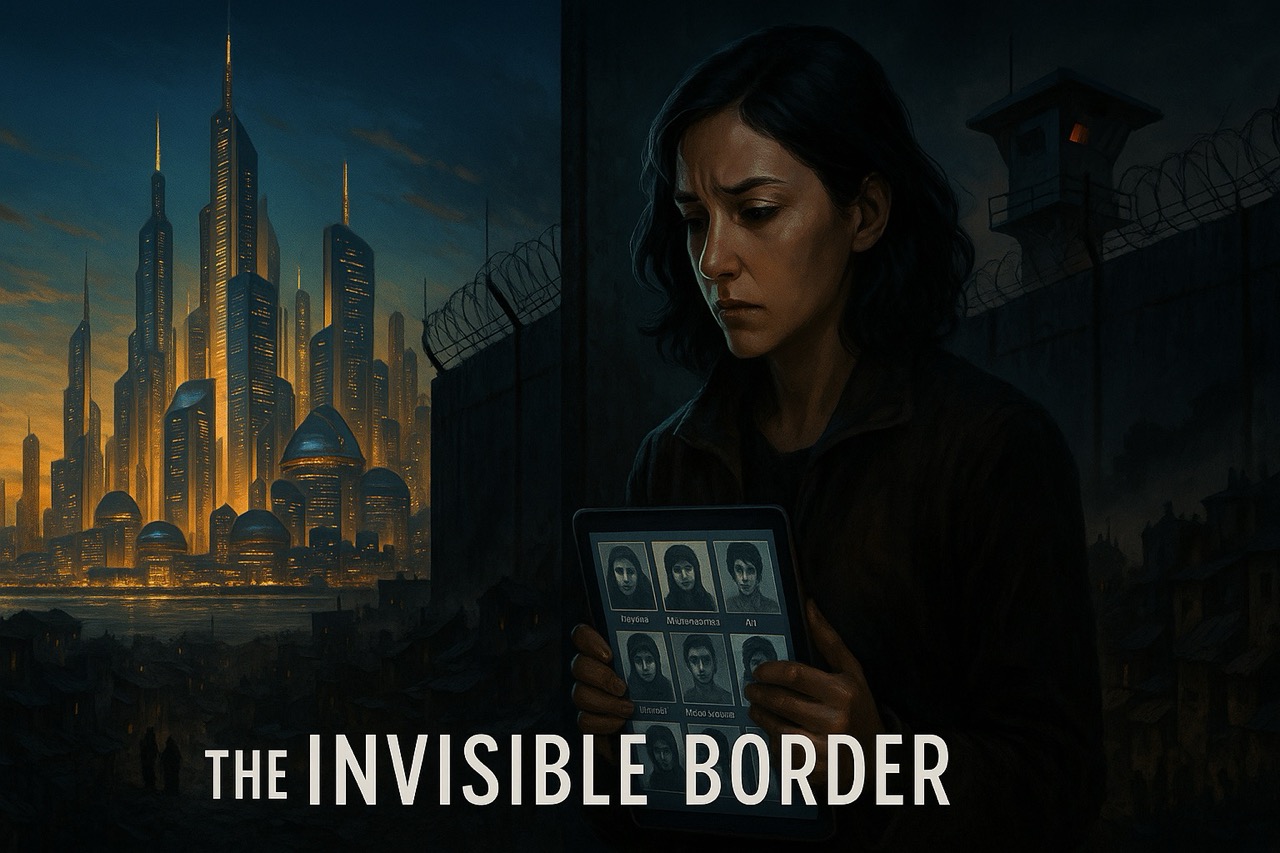The Invisible Border

In the gleaming city of Prospera, citizens enjoy unprecedented prosperity while just beyond, in the shadow of high surveillance walls, lies Ancestria.
The Ancestrians live in increasingly constricted zones, divided by checkpoints, barriers, and military installations. Their movement is severely restricted by an elaborate permit system that few can navigate. Many areas have been designated as "security buffers," requiring families who have lived there for generations to relocate to increasingly crowded enclaves.
Daily life for Ancestrians means:
- Standing in checkpoint lines for hours to reach jobs, schools, or hospitals
- Enduring random searches and detention
- Watching as their water and power are rationed while seeing Prosperan settlements nearby with swimming pools and constant electricity
- Having their children grow up in crumbling schools while being taught they have no legitimate history
In Prosperan media, Ancestrians exist as walking abstractions. Footage always shows angry young men shaking fists, never the grandmother waiting twelve hours for heart medication, the child celebrating a birthday, the poet, the doctor, the ordinary human. The language used—"infestation," "demographic threat," "security risk"—transforms people into pests. Very convenient linguistic evolution.
"Evolution is beautiful," says a popular Prosperan commentator. "We've evolved from calling them 'enemies' to calling them 'demographic challenges.' Next year, we'll just refer to them as 'inconvenient molecules occupying strategic space.'" The audience laughs. The joke appears on highlight reels.
The most perverse justification of all: Ancestrians are routinely condemned for being "uncivilized," "backward," and "technologically primitive." This criticism rains down alongside the bombs that destroy what little infrastructure they have left.
"Look how they live in filth and poverty," the Prosperan news hosts say with sneering superiority. "These people clearly can't build anything worthwhile or move forward."
It's the playbook that never changes: strip a people of resources, isolate them, suffocate their infrastructure, and then turn around and declare, "Wow, look at how undeveloped they are! Thank goodness we're here to civilize them with bullets and bureaucracy."
When some Ancestrians turn to violence - launching crude rockets or carrying out desperate attacks - the response is overwhelming. Prosperan military technology rains down on dense residential areas in the name of "neutralizing threats." Buildings collapse. Infrastructure crumbles. Children die in numbers that would be unthinkable if they were Prosperan children.
"They brought this on themselves," say Prosperan news commentators. "They rejected our generous offers," say politicians. "They don't value their own children's lives," say military analysts.
Eliza, who has been documenting these patterns, discovers something disturbing: the cycle is not accidental. Internal memos show that periodic "security operations" are planned to maintain the status quo - neither allowing Ancestria to develop meaningful independence nor fully integrating them as equals.
When a particularly devastating military campaign begins following a resistance attack that killed several Prosperans, the city erupts in patriotic support. Giant screens in public squares show sanitized footage of precision strikes while citizens gather in cafes to watch, cheer, and carry on with their comfortable lives.
Eliza stands in one such square, watching her fellow citizens casually sipping lattes while discussing the "necessary operation" as if it were a sporting event. On her tablet is the growing list of children killed that morning - names, faces, and stories that will never appear on these screens.
In this moment, she understands the true bargain her society has made: not just accepting occasional sacrifice, but building their entire way of life upon systematic dehumanization and controlled suffering.